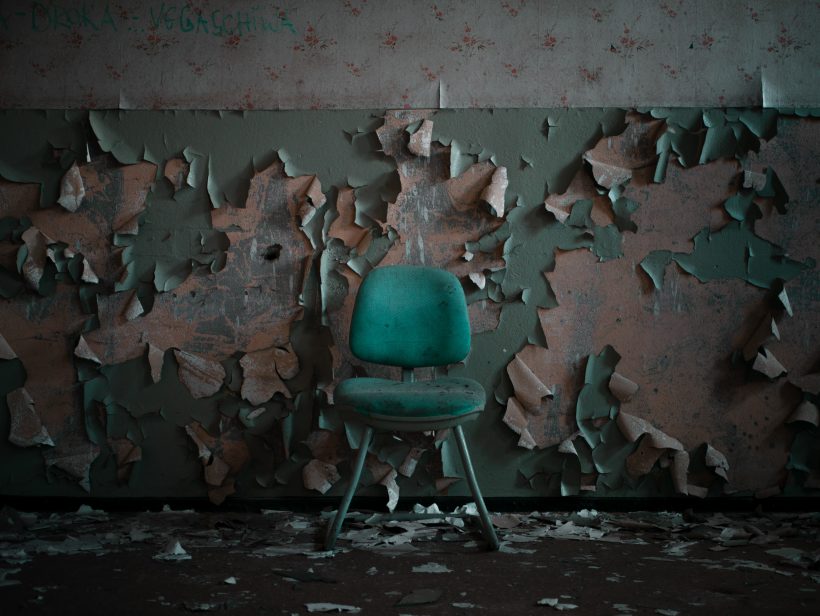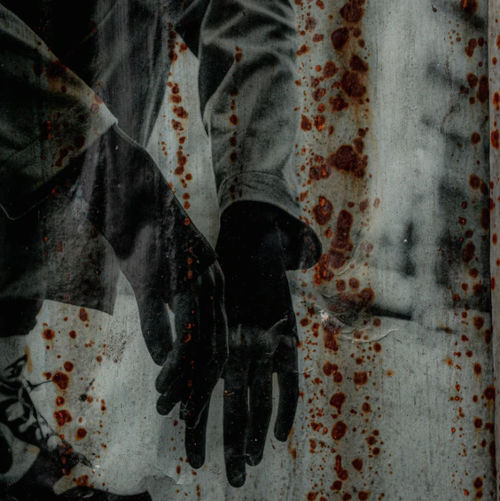On May 6, 2021, on the heels of Brazil’s deadliest month since the beginning of the Covid-19 pandemic, special police forces in Rio de Janeiro killed 28 people in the urban community of Jacarezinho. It was the deadliest single police operation in the city’s history – quite a feat considering the long history of militarized policing and violent encounters between state security forces and criminal groups. The political implications of the operation are difficult to ignore. The day before the operation, President Jair Bolsonaro met with the newly-installed Rio governor and ally, Cláudio Castro. The month of April had been devastating for Bolsonaro. A wave of high approval ratings had fizzled out amidst a combination of dwindling Covid social assistance payments and increasing inflation. Record Covid deaths, hospital overcrowding, the emergence of a new Covid variant in the state of Manaus, and overall federal government denialism and mismanagement of the crisis led critics to label Bolsonaro a perpetrator of genocide. The label appeared to be sticking. Like other authoritarian populist presidents, and the Philippines’ Rodrigo Duterte in particular, Bolsonaro has defined himself as the security president. He strives to personify the “strict father” that protects the people from a pervasive national threat, even if this means extreme action and violating democratic norms. Yet, he was an utter failure at protecting people from Covid.
We do not know if Bolsonaro and Castro discussed, or if Bolsonaro incentivized, the operation. Nevertheless, the operation played, at least in the short term, to Bolsonaro’s favor. The indignation over Covid took a temporary backseat in public debate while one of the starkest ideological schisms in Brazil grabbed attention: the schism between those who see the police as soldiers in a war protecting “good citizens” against the incredibly dangerous and ever-present threat of the “bandido”, and those who see the police as a largely corrupt institution that is overly excited to kill poor, overwhelmingly black, male slum-residents, with little regard for whether those residents are actually involved in crime.
Bolsonaro and Duterte have focused especially on the poor, male urban slum resident, building on a class, and in Brazil, racial narrative that equates him with immorality, indolence, and crime.
The narrative power of this contrived “war” between good and bad citizens helped propel Bolsonaro to power. His image as the ultra-macho commander of security forces “cleansing” a Brazil in a crisis of “immorality” and “threats” is exactly what he would want to replace the headlines dominated by Covid. Similarly, the bedrock of Filipino President Rodrigo Duterte’s political image has been a violent “war” on suspected drug users and sellers. This so-called war has also been his most consistent policy measure, in terms of both rhetoric and implementation. Those suspected of using or selling drugs are calculatingly depicted as immoral threats who will inevitably destroy the country if they are not eliminated. According to Duterte, the drug problem is the immediate existential crisis faced by the Philippines. Since he took office in 2016, an estimated 30,000 overwhelmingly poor, male urban slum residents have been killed in police and police-supported operations. Despite the majority of the population conceding that they do not believe the police only kill in self-defense (as the government claims), the so-called war against drugs remains highly popular.
A defining characteristic of the populist style is to identify and otherize a group in society, constructing a distinction between “the legitimate people” and “the enemy.” While the literature on populism has focused on defining the “elite” as the enemy, Bolsonaro and Duterte (as well as others in their authoritarian-leaning clan such as Trump, Modi, and Erdogan) have also conspicuously targeted and dehumanized groups that have been historically marginalized and abused by the state, thus taking advantage of already-existing stigmatization and hate. Bolsonaro and Duterte have focused especially on the poor, male urban slum resident, building on a class, and in Brazil, racial narrative that equates him with immorality, indolence, and crime. Urban slum residents are central to the economic lifeblood of Philippine and Brazilian cities. The middle and upper classes need their labor but must keep their humanity at a distance lest they socially ascend and displace the middle and upper classes’ from their exclusive privilege. (Or, perhaps, the middle and upper classes begin to feel guilty about their exploitation and the squalid conditions in which they live.) State security forces are already experts at targeting these residents, especially the male residents who are more easily portrayed as dangerous predators that must be subdued by force. Specialized militarized police units were deployed to urban slum areas during both countries’ dictatorships. Later, the international “War on Drugs” provided ready-made packages of funding, security training, and media talking points to convince the population that urban slums are synonymous with drug traffic and criminality.

By no means do I intend to brush aside the existence of criminal organizations, especially in Brazil. They do exist, they do battle police, sometimes they terrorize the communities in which they operate, and sometimes they provide positive services that the state does not. There are ways the state could demonstrate that it is serious about dealing with organized drug crime. It could distinguish between high-ranking criminal organization members and a residents who just happen to live among them. It could study effective policy approaches to sustainably deal with organized crime instead of a shoot first and ask questions later approach. It could raid upscale events and clubs where the drugs flow freely but are frequented by affluent and whiter audiences. Yet, these are options that neither interest nor are politically useful for Bolsonaro’s and Duterte’s style of rule.
When a nation is at war, everything else becomes secondary. Respecting human rights and democratic principles are not a priority.
What is useful for Bolsonaro and Duterte is stoking fear to justify their rule by crisis government. The middle and upper classes must not be allowed to believe that the threats to their interests can be solved by well-thought-out policy choices and targeted security interventions. Rather, they must feel that threat is constantly lurking around the corner, and that anyone from the majority poor and, in Brazil, black population could potentially be an existential threat. This fear and uncertainty justify steps by the Bolsonaro and Duterte regimes to not only disregard human rights, but also to weaken democratic institutions and to perform poorly in terms of basic management and governance.
When a nation is at war, everything else becomes secondary. Respecting human rights and democratic principles are not a priority. Beyond that, however, both Bolsonaro and Duterte have effectively portrayed democratic institutions as part of the problem that makes government ineffective at dealing with the existential threat of the “bandido”. In this way, they both benefit from and exacerbate general feelings that the Brazilian and Philippines political systems are hopelessly corrupt and inept. The Jacarezinho massacre was not just another violent police operation, it was also a direct challenge to the Supreme Court, which has repeatedly pushed back against Bolsonaro’s desired policy measures. The operation in Jacarezinho occurred despite a Supreme Court order banning police interventions in Rio’s poor neighborhoods during the pandemic except in exceptional circumstances. The day before the operation, Bolsonaro declared that he could issue an order nullifying governors’ Covid restrictions and that the Supreme Court could not question him. Following the massacre, Bolsonaro congratulated the Rio police, blatantly celebrating their defiance of the court order. Similarly, when Philippine Supreme Court Chief Justice Maria Lourdes Sereno questioned the validity of a presidential “watch list” of supposedly drug-involved judges (that included judges that had long been deceased) and challenged the imposition of martial law in the Mindanao region, Duterte instructed the Solicitor General and his congressional allies to pursue impeachment, ultimately leading to her removal. When Philippine Senator Leila DeLima opened an official inquiry into human rights violations related to the drug war, Duterte instructed the Solicitor General to arrest her on trumped-up charges of being a drug lord herself. In all cases, weakening or eliminating the institutions that supposedly stand in the way of the president’s righteous war against crime is a thin veil for increasing power in the executive and rejecting democratic checks and balances.
In both Bolsonaro’s Brazil and Duterte’s Philippines, ostentatious violence against poor urban residents is a political tool much more than a security policy. The police special forces that enter Brazil’s poor communities with tanks and automatic rifles as well as the bodies wrapped in packing tape that Philippine police leave on city streets are performances that send a message. To the poor communities, the message is to know your place and not question authority. To the middle and upper classes, the message is that these threats are everywhere and we are fighting a war to eliminate them on your behalf. This pervasive fear is the key to their political styles, as well as the most effective distraction from governing inconsistencies and failures. Breaking the spell requires seeing beyond oversimplified and romanticized narratives between absolute good and absolute evil. It requires confronting these countries complicated problems of class, race and crime. It also requires governments and policies that value solutions, not the fight.
Featured image by laura adai on Unsplash.




